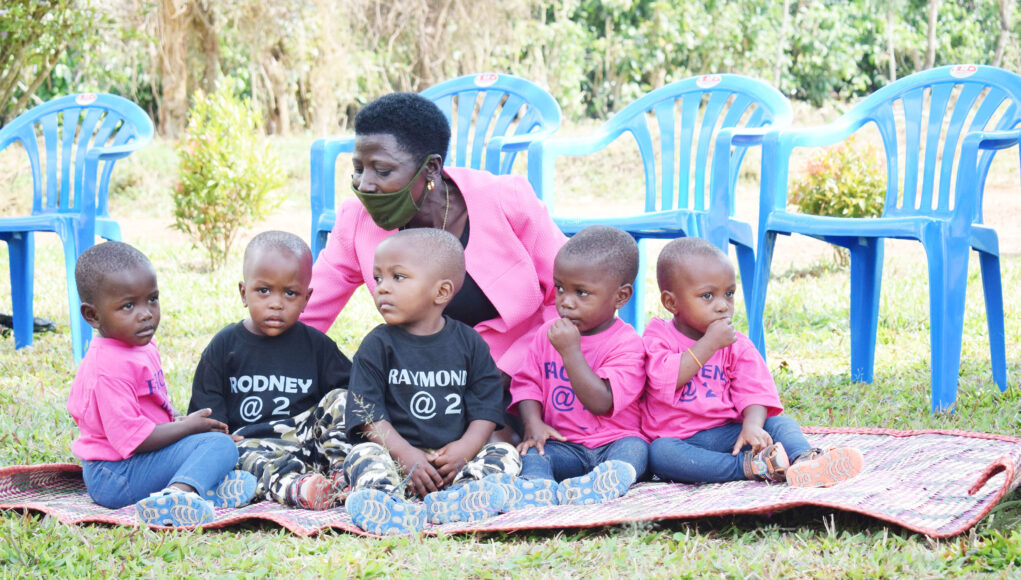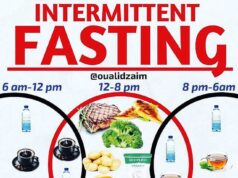Honoranta Nakato, 45, was diagnosed with breast cancer at the age of 39. She was immediately started on treatment and later healed. However, being a breast cancer survivor did not stop her from conceiving and having children. In 2018, the mathematics teacher at Ndeeba Secondary School in Kayunga District conceived through in-vitro fertilisation (IVF) and delivered five children. Nakato shared her story with AGNES KASEMIIRE.
I noticed the swelling in my left breast in July 2014. Three months later, the tumor had increased in size. It was growing very fast, and my husband advised me to seek medical help. I first confided in my twin sister, who encouraged me to seek advice from our elder sister Gertrude Nakigudde who had earlier been diagnosed with breast cancer.
Nakigudde heads the Uganda Cancer Survivors Organization (UCASO). After examining the swelling, she fixed an appointment for me with Dr Victoria Walusansa, a breast cancer specialist at the Uganda Cancer Institute (UCI).
Dr Walusansa recommended that I have several tests done, one of which was a biopsy, where tissue from my breast was examined.
Although the news of being diagnosed with breast cancer was shocking, I was able to contain it because I had knowledge about the disease following my elder sister’s diagnosis.
The doctor counseled and explained to me about the disease and the treatment modalities I required. This involved treatment with drugs (chemotherapy) followed by surgery to remove my breast (mastectomy). Concerned about how I would react to the side effects of treatment, Nakiggudde invited me to stay at her home. I got my first chemotherapy cycle in the last week of October, but did not react to the drug.
The worst came after the second cycle; my hair fell out and my skin darkened. There was also severe vomiting, I was weak and lost appetite.
However, accessing treatment was sometimes a challenge because the hospital would experience drug stock outs.
I would then have to buy the drugs in pharmacies in Wandegeya. A single cycle would cost Shs 400,000 and it was administered through the veins once in two weeks.
After three cycles of chemotherapy, I underwent surgery to remove the affected breast and was discharged a week later.
After a month of the wound healing, I resumed chemotherapy after which I was due to start on radiotherapy in March 2015.
However, I could not start because the only radiotherapy machine at the UCI had broken down.
I could only start in November and even then, I did not get my doses consistently because the machine often broke down. Fortunately, radiotherapy did not give me severe adverse effects save for a single incident where I developed chest pain, and was admitted at UCI for a day.
After radiotherapy, I continued going for reviews until the doctor said I did not require any more treatment.
I attribute my quick recovery to the overwhelming psycho-social support I received from my family, the medical team and breast cancer survivors.
After my breast was removed, I feared that my husband would shun me, but he stood by me and encouraged me to adhere to treatment, which gave me a lot of strength.
Breast cancer trends
Data from the Kampala Cancer Registry 2014 indicates that the prevalence of breast cancer stands at 3.7 per cent. This implies that four in every 100 women are diagnosed with breast cancer every year. Records at the UCI registry indicate there has been an increase in the new cases of breast cancer patients over the last four years. For instance in 2015, the institute registered 328 new patients, in 2016 there were 300 new patients and in 2017 the number rose to 508; while in 2018 about 514 new patients were registered.
The search for children
I had never had children, although I had been trying in vain.
When I had totally given up about having children, in 2016 Dr Walusansa encouraged me to seek medical advice from Women’s Hospital International and Fertility Center, Bukoto.
I took her advice and approached Dr Edward Tamale-Sali, the executive director of the hospital.
Dr Sali diagnosed me with blockage in the fallopian tube, which he said could have been a complication of a miscarriage I had earlier suffered. In January 2018, we were started on IVF treatment.
On February 6, 2018, six embryos were implanted (transferred) into my womb. Fortunately, I became pregnant with five. I was delivered by Cesarean Section at eight months on September 9, 2018.
The babies weighed between 1.3 and 1.5kgs. With my one breast, I was able to breastfed for only one week because I developed a heart complication that required me to start treatment.
The medical workers recommended I feed the baby on formula. On September 9, my babies turned two and are very healthy.
Breast cancer experts speak out
Just like Nakato, women who are diagnosed with breast cancer and treated can still conceive and bear children.
Except breast cancer experts (oncologists) discourage women on treatment from conceiving because the drugs cause adverse effects on fast-growing tissue within the body, including the fetus.
“The fetus is actively dividing to grow and when treatment is taken in the early trimester, it tends to affect organ formation.
Consequently, the unborn baby may develop congenital abnormalities,” Dr James Kafeero, an oncologist at UCI, says. Besides, pregnancy suppresses the immune system and makes breast cancer disease to progress very fast.
Treatment during pregnancy
Treatment for breast cancer during pregnancy depends on the stage of the disease and that of the pregnancy, says Dr Kafeero. Most times when a woman is diagnosed with breast cancer in the late stages of pregnancy, she is counseled and started on low doses of treatment. This, according to Dr Kafeero, helps to delay the progress of the disease but also to reduce the effect of the medicines on the unborn baby which if given in higher doses may result into miscarriage. Such women, he adds, tend to deliver earlier than their expected delivery date.
The good news is that the newborns do not suffer side effects of the drugs because their vital organs are already formed as opposed to giving the treatment in the early stages of pregnancy.
When a pregnant woman is diagnosed with breast cancer in the early stage of pregnancy, she is counseled and given available options so she can make an informed choice – either to start on treatment or carry the pregnancy and embark on treatment after delivery.
Understanding breast cancer
Globally, the month of October is dedicated to raising awareness about breast cancer.
The annual campaign is aimed at raising awareness about the disease and promote early detection and treatment.
Breast cancer is a disease in which cells in the breast grow uncontrollably. The symptoms and signs of breast cancer, according to Dr Noleb Mugisha, head of the Comprehensive Community Cancer Programme at UCU, may include: a lump (swelling) in breast, swelling in the armpit, change in breast size, skin dimpling (taking on an orange peel skin appearance), nipple inversion or sunken nipple, spontaneous single nipple discharge especially when bloody.
Breast pain is usually a symptom of advanced disease and breast ulcer (a wound developing on the breast with a swelling).
Another mother’s experience
Mercy Tayebya got a baby after breast cancer treatment.
I was diagnosed in February 2005 with breast cancer. I noticed my left breast was smaller and had a lump while I took a bath.
I approached my family doctor who examined and encouraged me to have a mammogram check-up done.
I did the mammogram test, but results were not conclusive and the doctor advised me to have the lump removed and a biopsy done. Later the biopsy report confirmed that I had cancer of the breast.
I was immediately admitted in Mulago National Referral Hospital. Mastectomy (removal of the breast) was done. A month later, I was started on chemotherapy.
Going through the six doses of chemotherapy was the worst time in my life. I nearly gave up on my third dose because it could give me severe side effects such as vomiting.
Fortunately I had a supportive family and I made it. In August the same year, I was put on radiotherapy and by September I was through and started on Tamoxifen tablets, a hormonal treatment. A year later I conceived.
I came to learn of the pregnancy after three months because I did not expect to become pregnant since previously I had missed my periods during chemo treatment.
However, the nurse who was attending to me encouraged me to do a pregnancy test which turned out positive. Immediately, I consulted my doctor who advised me to stop taking the treatment.
But internally I was worried about the health of my baby. Fortunately, in May 2007, I gave birth to a healthy baby girl, who is now five years and six months old.
I was able to breastfeed her using the remaining breast. Unlike Nakato, Tayebwa does not have any history of cancer in her family.






















